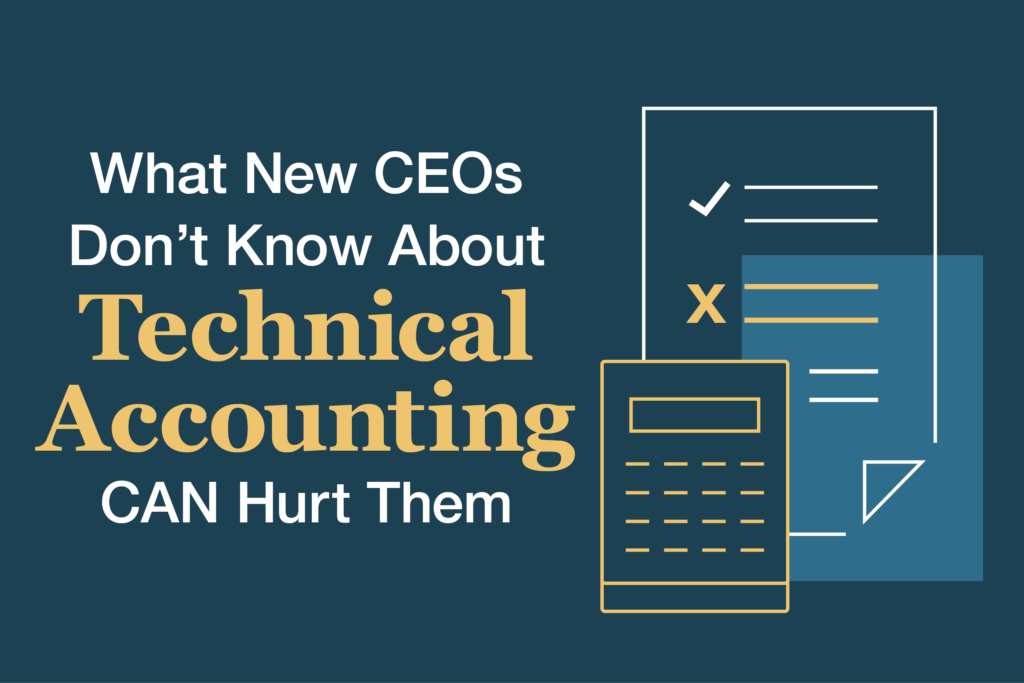When you’re the CEO of a shiny new startup, you’ve got one question on your mind: how do I grow this company into a force to be reckoned with? Product development, cash flow, investments—you’ve got so much on your plate that it can be easy to sideline everything else.
However, some things can’t be put on the back burner. Chief among them? Technical accounting.
We sat down with Alex Schwartz, a seasoned technical accountant at Propeller Industries, to help us understand technical accounting and the risks associated with putting it off. “A lot of CEOs see technical accounting as a checkbox, but it’s more like a roadmap. Skipping it early on can mean facing serious—and expensive—consequences down the line.”
Without proper technical accounting processes in place, critical goals—like growth and funding—could be delayed. In some cases, you might lose essential opportunities altogether due to poor or improper technical accounting.
Let’s take a look at why technical accounting expertise should matter greatly to CEOs by diving into some real-world examples.
Wait…What’s Technical Accounting?
A common mistake many CEOs make is viewing technical accounting as a compliance-oriented chore reserved for complex transactions or special accounting needs. But in reality, technical accounting is more of a ritual. It’s an ongoing practice that must be constantly monitored and updated.
Technical accounting goes beyond basic bookkeeping. It involves detailed compliance with Generally Accepted Accounting Principles (GAAP), understanding revenue recognition, and proper financial reporting.
The end goal? Ensure that your financials are accurate, transparent, and trustworthy. This transparency is crucial for investors, auditors, and even potential buyers if you’re looking to raise capital or eventually sell the business.
Establishing a streamlined, compliant balance sheet and building credibility with stakeholders is critical. “Technical accounting is about telling an accurate story of your company’s finances so that stakeholders trust what they see on your balance sheet,” Schwartz says. If you can’t tell that story, good luck finding more investors.
Common Accounting Challenges CEOs Face
New CEOs certainly don’t lack enthusiasm, but they can often be short-sighted. A big funding round can lead them to think cash in the bank is the same thing as success.
Unfortunately, this ‘fail fast’ mindset can lead companies to overlook accurate financial reporting and GAAP compliance. When accounting falls by the wayside, everyone involved with the company suffers, from founders to investors.
Alex has seen this happen time and again. CEOs can very easily be lulled into a false sense of security, which can lead to gaps in accounting processes. These types of oversights might go overlooked for months (or even years), but they can and will rear their ugly heads at the worst possible times—like when you’re seeking an investment or undergoing an audit.
If sound technical accounting processes aren’t in place, you’re also likely to face inflated costs during audit preparation. A simple oversight can snowball into hundreds of thousands of dollars in cleanup costs later. “I’ve seen companies save a few thousand dollars by avoiding GAAP compliance, only to spend hundreds of thousands cleaning up their books when it’s too late,” Schwartz explains.
Poor accounting is also an issue when it comes to scaling effectively. Without proper technical accounting processes in place, businesses may struggle with bottlenecks during periods of rapid growth. Building robust internal controls from day one sets any company up for smoother overall operations and a better financial position when it’s time to seek investment or conduct an audit.
In other words, technical accounting isn’t just about compliance–-it’s about implementing repeatable, automated processes for things like revenue recognition and margin reporting, which help businesses avoid issues down the road.
The Importance of Building Trust Early
Many first-time founders think their product is their credibility. But that’s just one piece of the puzzle. A company’s financial health can make or break its reputation, especially when it comes to wooing investors.
If you take away only one thing from this article, it should be that technical accounting isn’t just about compliance. It’s about building a clear and transparent foundation of trust that will carry your company through all its growth stages. A solid accounting foundation will pay dividends each time your company is ready to scale.
“Early investment in technical accounting pays off tenfold when you’re ready to scale or bring on investors. It’s about building trust and transparency from day one,” Schwartz explains.
This foundation is particularly important for startups seeking investment or preparing for an exit event. Investors and potential buyers want to be confident in your financial statements, and having a well-documented, compliant accounting system in place will make the process infinitely smoother.
Real-World Examples: The Cost of Delaying Technical Accounting
To illustrate the point, Alex brings up a client of Propeller Industries, Company X.
Company X thought things were going swimmingly. They were profitable, growing, and gearing up for the next round of investment. And after 12 years of operating on a cash basis and avoiding GAAP compliance, Company X was ready to take things to the next level: a big capital raise with big-name investors.
However, Company X’s failure to prepare for extensive audits meant they ended up facing a costly cleanup process to get their financials in order.
The result? Tens of thousands in accounting fees and hundreds of thousands in costs related to tax compliance issues. These unexpected expenses put them deeply in the red—and significantly delayed their fundraising round.
Simply put, postponing your technical accounting setup can lead to massive headaches down the road. Whether it’s an audit, capital raise, or exit, the longer you wait to put proper accounting systems in place, the harder and more expensive it will be to fix those mistakes later.
Technical Accounting is a Must for New CEOs
As a new CEO, it’s tempting to focus on cash flow, product development, and scaling your business. But you can’t ignore your housekeeping. For a little extra cash, you can set your company up to grow sustainably and stay on track with your investment and growth milestones.
By investing in solid technical accounting practices early on, you can avoid costly mistakes, prevent headaches during audits or capital raises, and ensure your company is in a strong financial position for years to come.
“Start investing in technical accounting today,” says Schwartz, “and you’ll be thanking yourself later when the business is ready for its next stage of growth or funding.”



